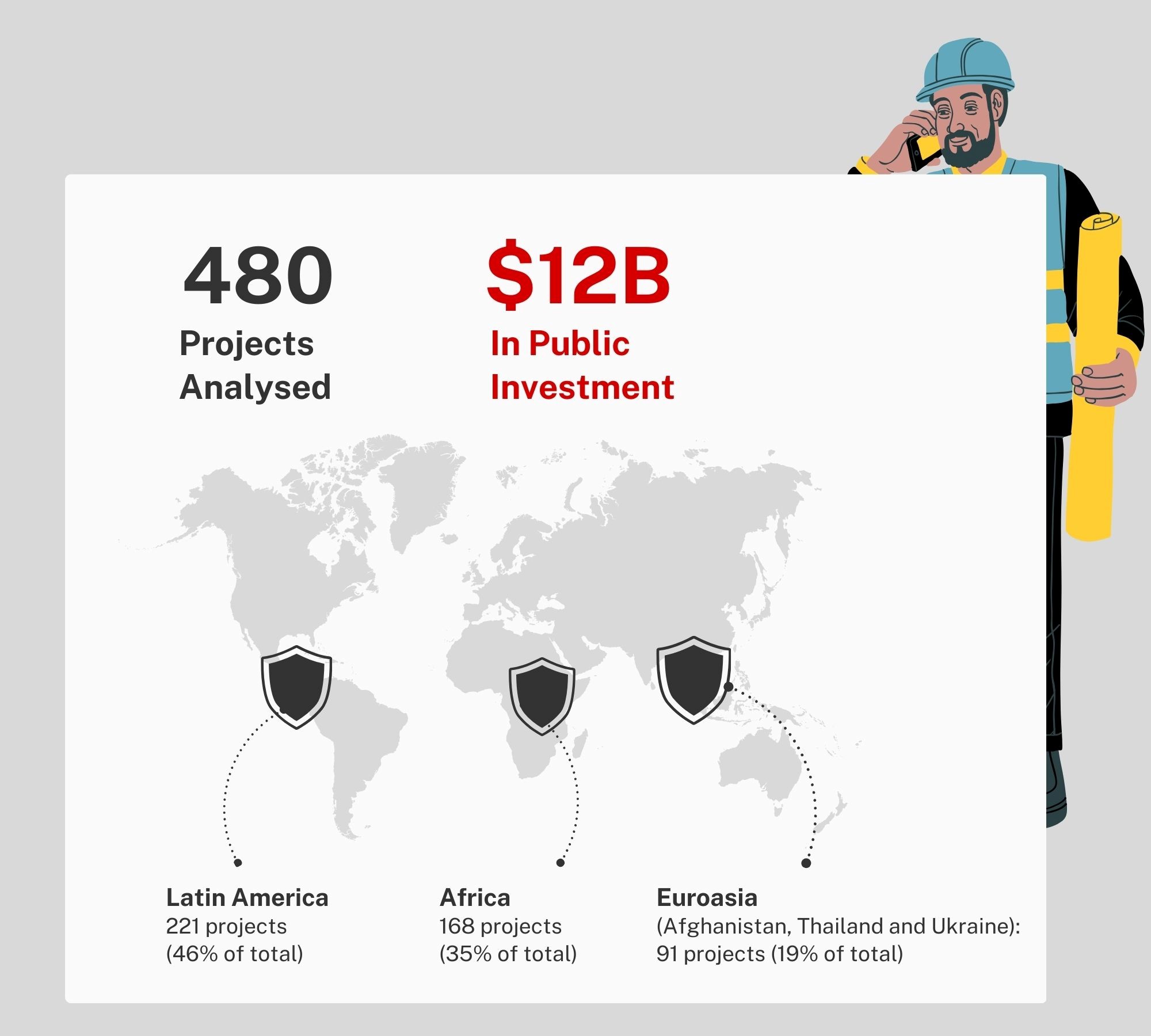By Maria da Graça Prado
“Over budget, over time, over and over again.” Professor Bent Flyvbjerg’s striking quote on infrastructure summarises a reality that practitioners across the globe know too well.
The pattern of project overruns has become so familiar that, much like death and taxes, delays and cost overruns are often seen as inevitable in the delivery of infrastructure. While there are global estimates about project cost increases, there is less evidence about the extent of project delays, their causes and impact.
In partnership with the World Bank, the Government of Japan and the Quality Infrastructure Investment Trust Fund, myself and my colleagues at CoST – Infrastructure Transparency Initiative – set out to tackle the issue of project delays by generating evidence to better understand their root causes. To achieve this, we drew on our database of infrastructure projects that had been independently reviewed as part of the CoST approach. Our analysis focused on 480 projects across multiple countries and sectors, examining the reported instances of delay and exploring the underlying factors that contributed to them.
 The sample of projects was global: nearly half of it came from Latin America (46%) but also included projects from Africa (35%) and a smaller portion from Eurasia, represented by Afghanistan, Thailand and Ukraine (19%). The road sector dominated the dataset (37%), followed by water, sanitation and education projects, totalling US$12 billion in public investment.
The sample of projects was global: nearly half of it came from Latin America (46%) but also included projects from Africa (35%) and a smaller portion from Eurasia, represented by Afghanistan, Thailand and Ukraine (19%). The road sector dominated the dataset (37%), followed by water, sanitation and education projects, totalling US$12 billion in public investment.
Out of the 480 projects analysed, the findings showed:
- 43% (205 projects) were found to have experienced delays, ranging from 2% to over 600% beyond the original schedule.
- 39% of the projects (186 projects) had no available information regarding delays – a finding that in itself can raise concerns about transparency and the adequacy of project record-keeping.
- 17% of the projects (82 in total) reported no delays.
Once we excluded projects where delay data was missing, we found that about 70% of projects faced delays which is consistent with global studies on project delays. However, the average duration of delays in our dataset was nearly twice as long as those reported in existing literature: on average, projects took 73% longer than originally planned.
Our approach enabled a more nuanced understanding about underlying factors contributing to delays throughout the project cycle. By applying a framework that distinguishes between immediate and deferred delays – those that arise and manifest within the same project stage versus those that originate earlier but emerge later – we identified a higher prevalence of delays rooted in project preparation.
Our analysis revealed that 60% of the identified delay drivers could be traced back to shortcomings in the preparation phase, rather than issues arising during tendering or contract execution. This emphasis reflects our intent to move beyond consequential symptoms and shed light on the deep rooted, systemic issues causing delays.
This insight matters: better project preparation and adequate technical and financial planning from the outset is essential.
We concluded that issues like:
- poor feasibility studies,
- unclear scope and
- inadequate financial planning
tend to set off a domino effect of delay that is carried through to tendering and execution.
Therefore, when delays are mostly downstream symptoms of upstream planning failures, the mitigation should not be limited to improving tender practices or project management during construction. Rather, better project preparation and adequate technical and financial planning from the outset is essential.
While planning challenges are a well-known concern in the sector, by grounding our insights in evidence from real-world infrastructure projects, our work offers a valuable perspective on how and where delays originate. It presents an opportunity to look upstream and start planning infrastructure that can break the cycle of “over and over again”.
Read the full report of research findings.
We also held a webinar on the report findings in partnership with CiCA. You can watch a recording of this on our youtube channel soon.
Maria Prado is our Senior Policy and Research Adviser, supporting CoST through the analysis and evaluation of programme results and providing evidence-based recommendations to enhance governance in the sector. Maria is a legal professional with expertise in construction and infrastructure, with experience in contract management, compliance, and dispute resolution.


